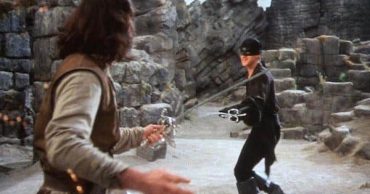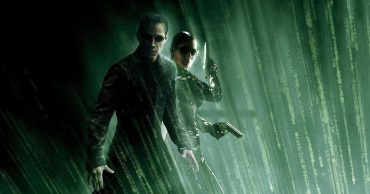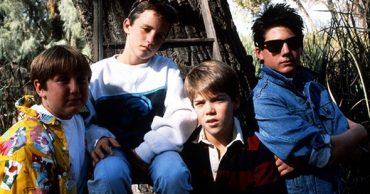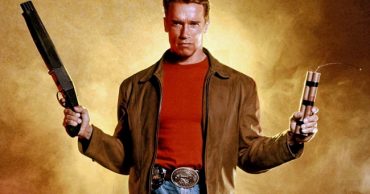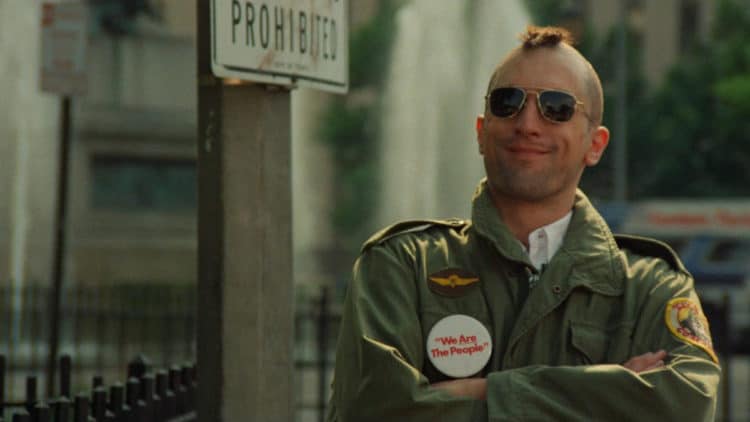
The movie that really put Martin Scorsese on the map was his character-driven piece, Taxi Driver. It follows loner and discharged Marine Travis Bickle, a guy who takes a job as a New York City cabbie. He examines the filth and scum that parades the streets at night and Travis constantly dreams of cleaning it up. When he meets a pretty campaign worker named Betsy, his obsession with saving the world only grows, first plotting to assassinate a presidential candidate, then directing his attention towards rescuing 12-year-old prostitute Iris. The 1976 film was a critical and commercial success, winning the Palme d’Or at the Cannes Film Festival; Scorsese’s feature would also receive four Oscar nominations including Best Picture and Best Actor in a Leading Role (Robert De Niro). The film was also inducted into the National Film Registry in 1994. Of course, the movie had its a fair share of controversy, namely the surprising amount of violence towards the end. It was actually booed during its premiere at the Cannes Film Festival for its graphic violence. Plus, Jodie Foster playing a 12-year-old prostitute wasn’t exactly seen in a good light, though Scorsese and crew took all the necessary precautions to make ensure both the mental and physical safety of the young actress. 1976 was a vastly different time period. Often, films that tend to come out around that time don’t particularly hold up to today’s modern standards. So, nearly 50 years later, does Taxi Driver hold up?
Here’s the thing, the most powerful thing about a movie is it’s the overall message and the lasting impression it makes. The reason why movies like Do The Right Thing or Boyz N The Hood remains timely because of the profound and important themes that resonate in today’s society. Those films pack a punch because so much truth is coded in the entertaining story. Now, does every film need a powerful and political message to hold up? No. There are no political messages with Terminator 2 or Alien, they’re just fantastic movies. The same thing can be said about The Godfather, Pulp Fiction, and Psycho. Taxi Driver lies somewhere between the middle. It was a stark, fiction reality of what Manhattan once was, but the true meaning behind Taxi Driver is the focal point of the entire feature: Travis Bickle. The Taxi Driver himself is clearly mentally unstable. Sleepless nights. His constant stalking of Betsy. His weird interactions with humans in general. Taxi Driver never says that there’s a solution to whatever Travis is going through, but it does highlight the dangers of a scarred man who went too far.
Him snapping at Betsy, to his obsession on trying to kill Charles Palantine, to even going out himself and ruthlessly murdering Iris’s pimp and the other lowlife scum that inhabit New York: Travis may have been treated as a “hero” for his actions, but Taxi Driver truly questions the morals of right and wrong. His intentions for protecting Iris is right but allowing this deranged man to kill without any sort of consequences feeds into his ego and sick mindset on the way things should work in the world. Taxi Driver’s messages linger more than its images, though that’s not to say it isn’t a great film. It’s a fascinating character piece centering around a protagonist with myriad of problems. The age of anti-heroes is nothing new in this generation. Walter White, Tony Soprano, Elizabeth and Philip Jennings, Deadpool, are just some of the popular names who are clearly on the anti-hero side, though Travis operates on a different breed of each man or woman. Taxi Driver is an unflinching dive into a violent world full of crooks and criminals, it just so happens that Bickle is the most likeable criminal out of the ones he kills. Of course, the key thing is the superb performance from Robert De Niro, who somehow didn’t take top honors at the 1977 Oscars. While most of De Niro’s roles in the modern era leave a lot to be desired, there’s no denying that he’s one of the best actors to every step in front of the camera. Taxi Driver relies on alot nuance and character building, and it’s De Niro’s masterful body language, or physicality that really helps sell who Travis Bickle is. Had it not been for De Niro’s strong performance, then the film wouldn’t have been as impactful, even though Paul Schrader does an excellent job of penning Bickle’s character. Overall, it doesn’t matter when you watch Taxi Driver because it’s a film that can resonate with anyone no matter the time period.
 Follow Us
Follow Us
